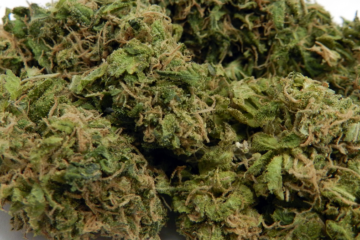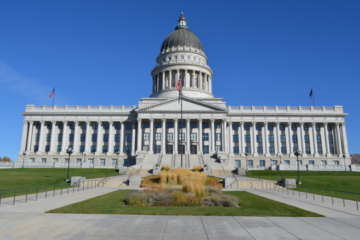The New Mexico Senate has unanimously passed a resolution that asks the state Department of Health to research the therapeutic benefits of psilocybin mushrooms and consider creating a program to allow their use for medical purposes.
Psilocybin as a Breakthrough Therapy
Psilocybin, the active ingredient in psychedelic mushrooms, has been shown to have positive effects on various mental health conditions, such as depression, anxiety, addiction, and post-traumatic stress disorder (PTSD). The resolution cites several studies that support this claim, and notes that the federal Food and Drug Administration (FDA) has designated psilocybin as a “breakthrough therapy” for major depressive disorder and treatment-resistant depression.
Breakthrough therapy is a status that the FDA grants to drugs that demonstrate substantial improvement over existing treatments for serious or life-threatening diseases. This means that the FDA will expedite the development and review of psilocybin-based therapies, which could potentially lead to their approval and availability in the future.
Bipartisan Support for Psilocybin Research
The resolution, sponsored by Senate Minority Whip Craig Brandt ® and Sen. Jeff Steinborn (D), was approved by a 37-0 vote in the Senate last week. The resolution is not binding, but rather a formal request for the health department to “study the efficacy of using psilocybin mushrooms for therapeutic treatments and the establishment of a program for psilocybin mushrooms to be used for therapeutic medical treatments.”

The sponsors of the resolution said that psilocybin therapy could offer a safe and effective alternative to conventional medications that have serious side effects and can be addictive. They also said that New Mexico could become a leader in psychedelic research and innovation, and help address the mental health crisis that affects many residents.
“It turns out that medical mushrooms, psilocybin, has proven to be medically efficacious for the use of major behavioral health issues. It can help alleviate and be an alternative to major anti-depressant drugs and probably other drugs that have serious side effects and can bring real relief to New Mexicans,” Steinborn said.
Brandt added that psilocybin therapy is “not a treatment that you take on your own once a day or once a week or even once a month, but it can be a treatment that’s done about once every six months to every year, as needed. And sometimes one treatment is all that’s needed to actually cure someone of a traumatic brain injury, or of PTSD.”
Collaboration with University of New Mexico
The resolution also suggests that the health department should partner with the University of New Mexico Health Sciences Center to conduct the psilocybin research. The university has a history of studying psychedelic substances, such as MDMA and ketamine, and their effects on mental health.
Dr. Rick Strassman, a professor of psychiatry at the university, was the first researcher in the U.S. to obtain federal approval to administer psychedelic drugs to human volunteers in the 1990s. He conducted a series of experiments with DMT, a powerful hallucinogen that is found in some plants and animals, and wrote a book about his findings called “DMT: The Spirit Molecule.”
Strassman testified in favor of the resolution, saying that psilocybin research could have profound implications for the understanding and treatment of mental illness. He also said that New Mexico has a unique opportunity to advance the field of psychedelic science and medicine, given its rich cultural and historical diversity.
“I think that New Mexico is in a very special position to contribute to this research, because of our long-standing interest in and respect for the use of these substances in indigenous and religious settings, as well as our cutting-edge biomedical research institutions,” he said.
Next Steps for Psilocybin Legislation
The resolution is not the first attempt to promote psilocybin therapy in New Mexico. Last year, the House Health and Human Services Committee passed a similar bill that called for the creation of a state commission to study the feasibility of a psilocybin therapy program for certain patients. However, the bill did not advance further in the legislative process.
The resolution passed by the Senate does not require any action from the health department, but rather expresses the will of the lawmakers. It is unclear whether the health department will comply with the request, and what steps it will take to conduct the psilocybin research.
The resolution also does not legalize or decriminalize psilocybin mushrooms in New Mexico, which remain a Schedule I substance under federal and state law. However, it could pave the way for future legislation that could change the legal status of psilocybin and other psychedelics in the state.
New Mexico is not the only state that is exploring the potential of psilocybin and other psychedelics. In recent years, several states and cities have passed laws or initiatives that decriminalize or legalize the possession, cultivation, or use of these substances for personal or therapeutic purposes. These include Oregon, Colorado, California, Michigan, Massachusetts, and Washington, D.C.



